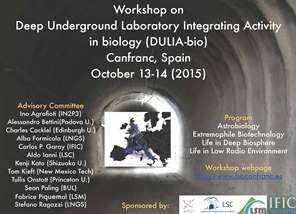Description
Astrobiology seeks to understand the origin, evolution and distribution of life in the Universe. The Boulby Mine in North East England offers a rare environment for advance in these areas, without exposure to the hazards of space.
The UK Centre for Astrobiology at the University of Edinburgh runs the BISAL facility (Boulby International Subsurface Astrobiology Laboratory) with the Boulby Underground Science Facility, taking advantage of the extreme environments in the mine to learn more about life in the deep subsurface and the instrumentation needed to probe such habitats remotely.
Some of the work in Boulby is focussed on the identification and analysis of the geobiology, chemistry and physics of these deep subsurface environments, such as brine geochemistry, characterising the microbial communities by culture and culture-independent techniques, and examining how they contribute to deep subsurface biogeochemistry. This can not only tell us about how Earth’s microorganisms can adapt to life these in extreme environments, but allows us to assess the habitability of extraterrestrial environments. Another upcoming project entails looking at how radiation, and the lack thereof, can affect microbe viability, using the shielding from cosmic and geological sources of radiation that Boulby provides.
Additionally, utilising Boulby as an analogue site for testing techniques and instruments being developed for the exploration of other planets is realised in the MINAR project (Mining and Analogue Research). Various analytical instruments being built for planetary exploration have been tested in this logistically difficult and isolated environment providing vital information and insight into the challenges of robotic space exploration and sampling. As MINAR occurs in an active mine, technological spinoffs from MINAR are shared with the mining community, thus aiding mine environmental assessment such as ore quality and mine structural geology.

